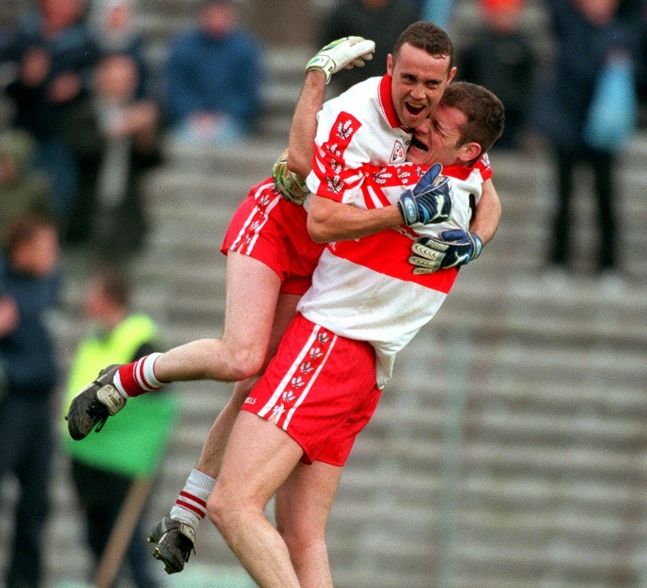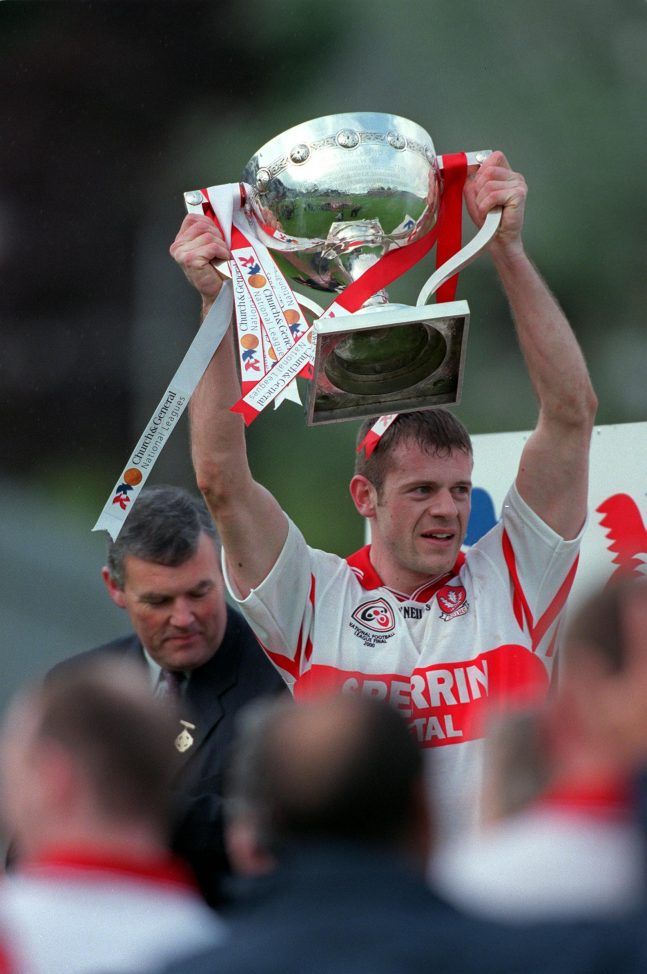I was asked before if I’d ever be interested in news journalism. To be honest, I couldn’t have given a quicker no in all my life.
That’s real stuff. It’s important stuff. It’s stuff that actually, genuinely matters.
Maybe they’re not reporting on hard-hitting cold truths all the time, maybe cabinet reshuffles really don’t mean a thing, but I operate in a bubble of sport and it’s a safer, easier place.
It’s a place where we pretend like what we’re doing has an effect on the world but, conversely, by doing so, it actually does. It provides the escape, the distraction, a place you can just wholly throw yourself into all the highs and lows, the inspiration and heartbreak, safe in the knowledge that, at the end of it all, it’s only sport.
You can walk away from it if you want. You can skip it. You can turn it off. But you can’t do that in the real world. You can’t do that in life.
Wrote something about Manchester and why music, sport and solidarity matter – https://t.co/xgbMEXxNvu via @joedotie
— Dion Fanning (@dionfanning) May 23, 2017
I’ve always had a keen admiration for news journalists on the front line of real issues. They’re putting themselves right out there, a lot of the time they’re volunteering themselves for grief, and they’re risking, every single day, the possibility of gravely offending someone or a group of people and they’re risking the potential of making a mistake that, in reality, does have a big impact. They go to work every day walking a dangerous tightrope where one wrong step is crucial and they do that in pursuit of telling the real story of the real world.
In my profession, the most I could ever insult someone is to allege that one man can’t kick a ball as straight as he should be able to.
Listen, people still take that bad. You fall out with players and managers. Parents ring you up to give you a piece of their mind after what you said about Johnny. Journalists with completely different opinions or different ways of working call you out publicly with what sometimes feels like disdain. Lads even contact your boss to ask him to sack you.
At the end of the day though, they only disagree with how you see the game. And, at the end of the day, it’s only a bloody game.
Who really cares, in the grand scheme of things, if my take on a team’s formation or a player’s ability isn’t in line with the general consensus and if it isn’t reserved or even nice?
I went to my first live sporting event at the age of 11. It was an insignificant enough affair, Derry against Roscommon in the league semi-final in Clones, but it was only a few weeks after my dad had passed away and a distant relative of the family – a man I had never met – took myself and my brother down the same road we’d spend the next 10 years travelling to together, for every single Derry game.
I still remember sitting on the wooden seats of a sparsely-populated St. Tiernach’s Park, completely unsure of the surroundings but gradually getting lost in the idea that I had a duty here to support the team in white and red and slowly realising that I wasn’t even thinking anymore.
So I roared for them, I clapped for them, I followed every inch of every ball’s flight and became so absorbed in the winning and losing of this contest that, for 70 minutes, everything else was blocked out. Everything real.
Two weeks later, we made the trip back to Monaghan again to watch Anthony Tohill lift the league title and, from there, this world that I had found pure comfort and blissful distraction in became my entire life.

Any heated conversation I had was shaped around the Derry team. We started trekking to random club games to see if anyone else was out there to help our county’s cause.
I soon signed up with my own local club and spent every single age group the whole way through to seniors battling just to keep hold of a starting jersey. Some days I won, some days I lost, but I went away in the intervening weeks and plotted victory all over again. I lost myself completely and utterly in this struggle because it was easier to focus my energy on that. For months, it seemed like my family had expended all its effort not even muttering a word about what happened so, after a while, my biggest protection was avoidance.
It was safer being out and away from it all than facing the grim subtext of a silent house when something like a fence or a sink had broken and no-one was able to fix it.
It was easier to talk about the club team and the work I was going to do to get the jersey back when you realised that, after a year, no-one was going to address the missing plate at dinner.
In time though, the laughing and wisdom that came from the head of family was replaced with me and my brother’s own laughter from stories on the road, from arguments about the Derry team, from exaggerated impersonations of the once-strange distant relative who became one of the most important people in my life.
Because, by the time I had grown up, I was consumed by this way of life. My purpose seemed solely to honour the greater good of the empire of my club and my county. From coaching underage teams to bitching about the senior side and eulogising about Derry players, my world became filled by what many would think inconsequential entities but, to me, they were all glorious relief that you could spend a lifetime content with.

And through the years, you don’t even remember when it got better. You don’t realise when it was that you were no longer doing this as an escape but that it was just part of who you are. You don’t appreciate how long it took for anyone in your family to say aloud the two syllables that make up the word “daddy” because it used to choke you up and it used to never get said.
As Ken Early put it so perfectly in the Irish Times, it is fantasy. But it helped.
“George Orwell was never more wrong than when he wrote that serious sport was ‘war minus the shooting’.
“The truth is that sport is the opposite of war: it unfolds according to rules that everyone understands. To care about sport, to allow yourself to be emotionally invested in what happens when 22 people kick a ball around for 90 minutes, is obviously to step into a fantasy world.”
Now, these things aren’t just my passion and my distraction, they’re my livelihood. And there’s something so wonderful about being able to throw yourself into sport as if it’s the be all and end all. As if it is really important.
Because, make no mistake about it, at its best, sport has the ability to propel people. It has the ability to unite, to inspire and to make you believe that anything is possible. It’s a place you take out your life’s frustrations, like a permanent, sturdy punch bag that’s always there for you. It’s somewhere you can allow yourself to become completely lost in and completely broken by, safe in the knowledge that you can step away any time you want.
For a lot of this planet, sport gives them a reason to live – even if it’s only pantomime at the end of it all. Even if it’s only to escape real life.
In a week like this that’s just past though, you get dragged into harsh reality swiftly again and it’s hard to get back. It’s hard to get back into the bubble where you can pretend like passages of play are important. It’s hard to get back into the mindset of arguing wildly about the performances and results of Jose Mourinho’s Manchester United.
The Europa League final represents a small opportunity to do that once more. Call it ignorant, call it naive, you can even call it insensitive if you want but, for 90 minutes at least, it will be a better world pretending like this game actually matters. For another 90 minutes, it will be a glorious relief to get lost in the fantasy again.











































